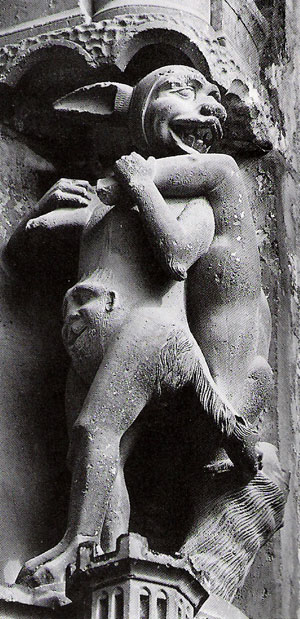
The Talmud in Tractate Megillah discusses the changes made by 72 sages to the Torah as they translated it for an Egyptian king. One of the changes described by the Talmud is that in the list of un-Kosher animals they wrote "The short-legged animal," rather than the "rabbi" because the kings wife's (אשתו) name was rabbit. They were afraid that would they write rabbit as an unclean animal he would take it as a personal affront to his wife, even to the extent that he would think they had inserted it just to get ridicule her.
I mentioned this to my wife and she told me that the Egyptians had a fertility god that was symbolized by a rabbit. That got me thinking. Some further research led me to an interesting hypothesis about what the Gemara was really saying.
The Egyptian fertility goddess Isis is understood by some to be properly pronounced as Ishet. It was a derivative of the Assyrian goddess Ashteroth, which was a fertility deity, often represented by a rabbit. Many understand this to be the pagan antecedent to the Easter holiday. You can hear echoes of the word Easter in Ashteroth.
My suggestion, therefore, is as follows. The conventional way to understand the Talmud is that "ishto", his wife, meaning the wife of Ptolemy was named rabbit. But, perhaps we can understand it to mean that ishto means his fertility god Ishet was represented by a rabbi, which is why the translators of the Torah were afraid of upsetting him by writing that a rabbit was an unclean animal.
I mentioned this to my wife and she told me that the Egyptians had a fertility god that was symbolized by a rabbit. That got me thinking. Some further research led me to an interesting hypothesis about what the Gemara was really saying.
The Egyptian fertility goddess Isis is understood by some to be properly pronounced as Ishet. It was a derivative of the Assyrian goddess Ashteroth, which was a fertility deity, often represented by a rabbit. Many understand this to be the pagan antecedent to the Easter holiday. You can hear echoes of the word Easter in Ashteroth.
My suggestion, therefore, is as follows. The conventional way to understand the Talmud is that "ishto", his wife, meaning the wife of Ptolemy was named rabbit. But, perhaps we can understand it to mean that ishto means his fertility god Ishet was represented by a rabbi, which is why the translators of the Torah were afraid of upsetting him by writing that a rabbit was an unclean animal.
No comments:
Post a Comment